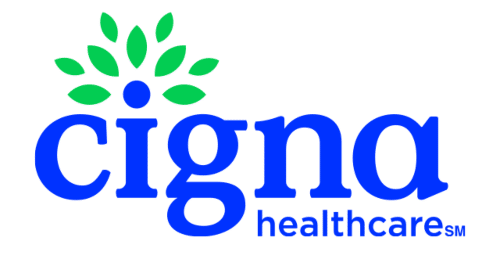Our Costa Mesa Cocaine Rehab
Comprehensive Cocaine Addiction Treatment
Did you know that around 671,000 persons over 12 years old tried cocaine for the first time in 2019? Cocaine misuse is a big problem in the United States that is not going away.
Cocaine is a popular party drug due to its quick onset and surge of elation. It is highly addictive and has been linked to a variety of mental and physical health concerns. Many users are capable of overcoming their cocaine addiction with the proper cocaine rehab treatment.
If you or someone you care about is battling a cocaine addiction in the Orange County area, help is closer than you think. Learn more about cocaine rehabilitation and what our Costa Mesa addiction treatment center can do for you.
What Is Cocaine?
Cocaine is a highly addictive hallucinogenic drug derived from the leaves of the South American coca plant.
While health care workers are permitted to use cocaine for legitimate medical purposes, recreational cocaine usage is illegal. Cocaine as a street narcotic resembles a thin, white crystal powder.
- Coke
- Blow
- Crack
- Snow
- Rock
To increase profits, street dealers frequently combine it with cornstarch, talcum powder, or flour. Additionally, they may combine it with other substances such as amphetamine or opioid drugs such as fentanyl.
Combining synthetic opioids with cocaine is very dangerous. Increased overdose fatalities among cocaine users link to this tainted cocaine.
How Do You Use Cocaine?
Some people snort cocaine powder or smear it into their gums. Others dilute the powder and administer it intravenously. Some users inject a mixture of cocaine and heroin known as a Speedball.
Another frequent way of consumption is to smoke cocaine that has been crystallized. Heat is applied to the crystal, which produces fumes that are breathed into the lungs. This kind of cocaine is known as Crack, named after the cracking sound made by the crystal when heated.
The Effects of Cocaine
Cocaine elevates dopamine levels in the brain circuitry associated with movement and pleasure.
Dopamine normally recycles back into the cell from whence it was released. That shuts down the transmission between nerve cells. However, cocaine inhibits the recycling of dopamine.
That inhibition results in a buildup of enormous quantities of dopamine in the gap between two nerve cells. That shuts down their usual communication.
That rush of dopamine into the reward circuit of the brain greatly encourages drug-taking behavior. Continuous drug usage may cause the reward circuit to adapt, making it less responsive to the drug. As a result, individuals take higher and more frequent dosages to achieve the same high and alleviate withdrawal symptoms.
There are short-term and long-term effects when using cocaine.
Short-Term Effects
After consuming cocaine, the user will begin to experience this drug’s psychological and physical effects almost immediately.
- Great Joy and Energy
- Mentally Alert
- Hypersensitivity to Visual, Auditory, and Tactile Stimuli
- Annoyance
- Irrational Suspicion of Others
When you have used cocaine, there are certain tell-tale physical signs.
- Constricted Blood Vessels
- Fast or Irregular Heartbeat
- Nausea
- Raised Temperature and Blood Pressure
- Dilated Pupils
- Tremors and Muscle Twitches
- Restlessness
Long-Term Effects
Certain long-term health implications of cocaine are dependent on the mode of administration.
- Headaches
- Seizures and Convulsions
- Heart Attack and Stroke
- Mood Swings
- Sexual Disorder
- Damage to the Lungs
- If you consume via injections, HIV or hepatitis
- If swallowed, it can cause bowel rot
- If you snort it, you may have a loss of smell, nosebleeds, and difficulty swallowing
Cocaine Addiction Treatment Options
Nobody is more knowledgeable than a professional. The first step is admitting you have a problem and expressing a desire to quit your addiction. The second step, which is a major step in the recovery process, is seeking professional help.
This could be from:
- Your Doctor
- Licensed Psychologist
- Psychiatrist
- Mental Health Worker
- Counselor
In-Patient Residential Treatment
If outpatient counseling and treatment are insufficient, a residential treatment program may be more appropriate. Staff at a rehab evaluate an individual’s fundamental concerns throughout inpatient treatment. They determine which are the underlying issues that have led to their drug addiction.
At a recovery facility, they consider the entire individual, not just the addiction. Patients get more extensive individual and group therapy sessions. You also get more intense therapy methods during this phase of treatment, which lays the groundwork for healthy living beliefs.
An interdisciplinary team of healthcare specialists will determine each patient’s treatment plan.
Partial Hospitalization Program
Partial Hospitalization Programs (PHP) are a step-down service that benefits those who have already completed an inpatient program and do not need around-the-clock supervision or medical care.
When you are addicted to cocaine, in PHP, you will participate in an intense recovery program. You will also work closely with professionals in the field of addiction therapy. These include doctors, nursing staff, counselors, psychiatrists, and health professionals.
Outpatient Therapy
An outpatient treatment facility is a drug abuse counseling service that enables clients to obtain treatment for drug misuse without enrolling in a residential program. The patient can continue living their normal life while attending treatment sessions and support groups three days a week for an hour each.
Sober Living Program
Our sober living homes in Huntington Beach provide the same specialist healthcare as residential addiction treatment programs, except that clients can live outside the rehab center in their own homes or sober living homes.
Sober living treatment entails group therapy sessions several times a week. Members discuss and contribute to transitory experiences and provide support for one another’s accomplishments and disappointments.
Many participants in this program have successfully finished detoxification and inpatient programs. They already possess the necessary abilities for sobriety maintenance.
Get Cocaine Rehab in Costa Mesa
Due to its rapid onset and burst of elation, cocaine is a popular party drug. Others take it to remain alert or lose weight due to its appetite suppressant qualities.
However, cocaine is very addictive, and people who begin using it recreationally may realize that it begins to take over their everyday life.
Fortunately, if you or someone you love is battling with cocaine addiction in Orange County, CA, treatment options are accessible, such as our cocaine rehab treatment centers.
Contact us today, and one of our admission consultants will assist you in enrolling in our Cocaine Rehab in Costa Mesa!
Contact Us Today
FAQ's
Cocaine rehab typically includes detoxification (if needed), individual and group therapy, cognitive-behavioral therapy, relapse prevention planning, and support for any co-occurring mental health issues.
The duration of cocaine rehab varies by individual, with programs ranging from 30 days to several months. The length of stay is often determined by the severity of the addiction and the individual’s progress in recovery.
Cocaine addiction recovery can be challenging due to the powerful cravings and the changes in brain chemistry associated with cocaine use. Rehab programs focus on strategies to manage cravings and rebuild healthy brain function.
Outpatient rehab can be effective for individuals with mild to moderate cocaine addiction who have strong support systems. It allows individuals to continue with daily responsibilities while receiving treatment.
Aftercare is crucial in maintaining sobriety after completing cocaine rehab. It may include ongoing therapy, participation in support groups, and lifestyle changes to support a drug-free life.














